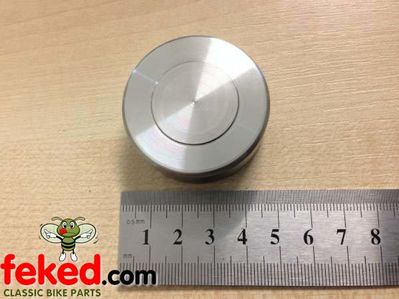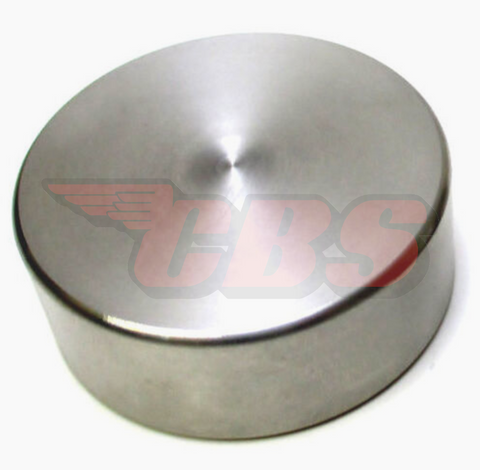Just rebuilt the Master Cylinder, Caliper, (Lockheed) and replaced the brake hose.
I bleeds just fine, have a nice firm feel on the lever, and the caliper pistons do compress the brake pads against the rotor.
However, the braking is extremely weak.
Where as that last time I rode it, which was about 5 years ago, the front brake worked great.
I have changed pads in the past as well as the brake fluid and have had no problem up until now.
The reason I rebuilt the caliper and master was that after sitting for five years, I gave the brake a good squeeze, and it failed, the lever collapsed to the handle bar.
Another symptom is that the brake sending unit does not activate the brake light, even though I replaced that as well, and yes the wiring is correct.
All the components cleaned up nice, but there is obviously something still wrong.
I bleeds just fine, have a nice firm feel on the lever, and the caliper pistons do compress the brake pads against the rotor.
However, the braking is extremely weak.
Where as that last time I rode it, which was about 5 years ago, the front brake worked great.
I have changed pads in the past as well as the brake fluid and have had no problem up until now.
The reason I rebuilt the caliper and master was that after sitting for five years, I gave the brake a good squeeze, and it failed, the lever collapsed to the handle bar.
Another symptom is that the brake sending unit does not activate the brake light, even though I replaced that as well, and yes the wiring is correct.
All the components cleaned up nice, but there is obviously something still wrong.
Last edited:


